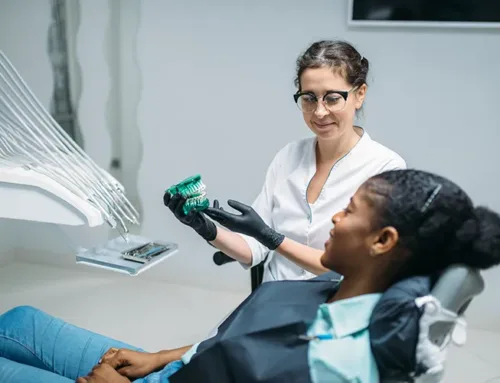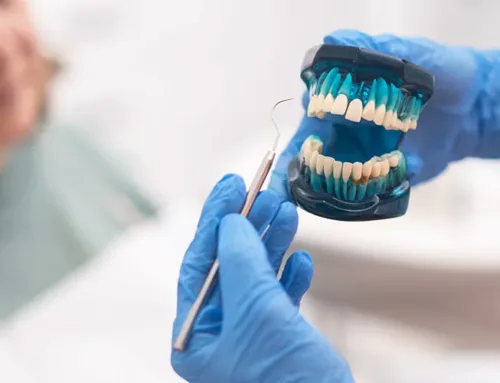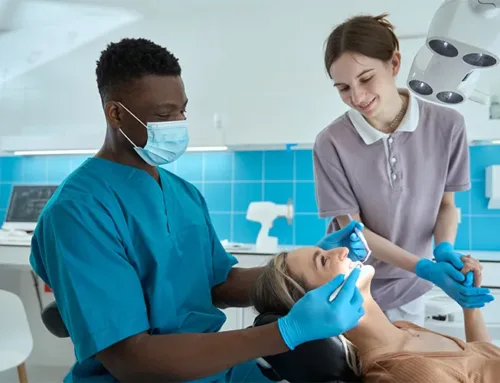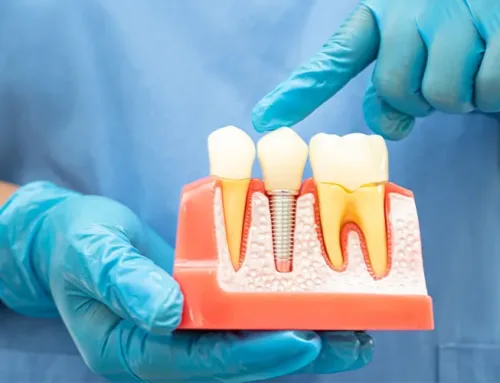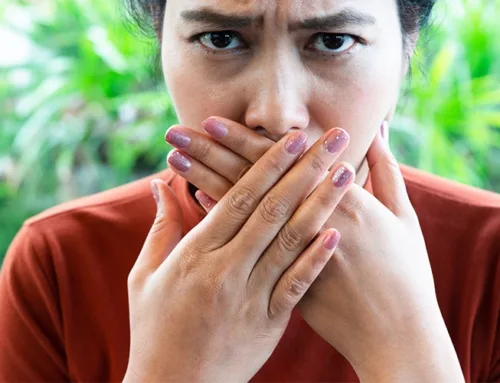Jaw Pain While Chewing? Here’s A Jaw Pain Checklist We Give Tampa Residents
March 20, 2024
Click, pop, and lock. Ever find yourself wondering, “Why does my jaw hurt when I chew?” If opening your mouth wide, chewing, or yawning gives you a jolt of pain, or causes your jaw to pop or lock up, then you may have temporomandibular joint disorder (TMJ). This condition can be aggravated by factors like inflammation, misalignment, or damage, which disrupts your jaw’s ability to move smoothly, leading to jaw pain. Luckily, TMJ is easy to identify through the symptoms and cause checklist sections below.
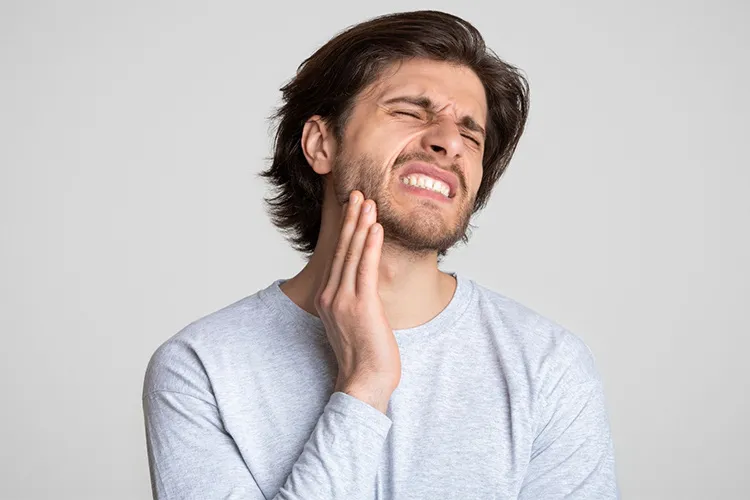
Identifying Jaw Pain – Looking At Your Symptoms
Why Does My Jaw Hurt When I Chew?
Jaw discomfort can develop from many sources, ranging from temporary periods of intense stress to chronic teeth grinding (bruxism), to the misalignment of the jaw itself. These issues can manifest in a variety of ways, so using a symptoms checklist can help you identify if you’re experiencing TMJ or another dental-related problem.
- Does Your Jaw Hurt While Chewing On One Side? A one-sided ache can be a telltale sign of trouble in the temporomandibular joint (TMJ) on that specific side. This ache could be accompanied by localized pain that intensifies when you chew or a constant throbbing that spreads to your ear/temple on that side.
- Do You Have Limited Movement? If you find that it’s difficult to open your mouth as wide as usual, especially if your jaw hurts while chewing on one side, this jaw stiffness is recognized as a TMJ symptom.
- Does Either Side Click or Pop? Even if you don’t experience outright jaw pain, any noticeable clicking or popping sounds when you open or close your mouth indicate misalignment in the jawbone joints.
- Do You Have Facial Pain or Earaches? The nerves that surround your ears and jaw overlap, often leading patients to mistake jaw pain for an earache – so, don’t discount this if earaches are not typical for you. You may also experience facial pain that travels to your cheeks, temples, and ears.
- Do You Have Tenderness Around The Jawline? If lightly touching the jawline around the joints makes you reel back with pain, this indicates there is muscle strain and inflammation present. You can verify by looking for visible swelling along the jaw.
- Why Does My Jaw Hurt When I Chew Certain Foods? Certain foods can aggravate TMJ pain because they require excessive chewing or strain on the jaw joint due to their toughness or texture. This extra effort can trigger inflammation in the already compromised joint.
Do any of these sound familiar? If yes, check the boxes next to the symptoms in the list above, so that you know what information to relay back to us, when you come in for an evaluation and diagnosis.
What Is Causing My Pain? Common Culprits of Both TMJ and Non-related TMJ Jaw Pain
If you’re still wondering, “Why does my jaw hurt when I chew,” the list below can provide some insight into the causes behind both TMJ-related & non-TMJ-related factors. Do you have any:
- Arthritis: degenerative joint disease can affect the TMJ causing pain and inflammation.
- Jaw Injuries: a heavy blow or whiplash can damage the joint, leading to TMJ disorders.
- Joint Erosion: the joint disk, which absorbs shock, erodes over time and can lead to TMJ.
- Bruxism: grinding your teeth places a lot of pressure on the joint, causing pain.
- Stress: intense periods of stress lead to jaw clenching and teeth grinding, causing pain.
- Dental Conditions: cavities, toothaches, or issues with wisdom teeth can all contribute to jaw pain.
- Sinus Problems: when your sinuses become inflamed, the pressure can radiate to the jaw area, mimicking jaw pain.
To find relief avoid eating hard, crunchy, or chewy food as this can cause your jaw to hurt while chewing on one side, and opt for soft foods like mashed potatoes, cottage cheese, and soups, while also avoiding extreme jaw movements like yawning wide or chewing gum. Beyond this, use warm compresses to relax muscles and reduce inflammation, and combine with stress management techniques like meditation and deep breathing. If the pain is mild, over-the-counter pain relievers may offer temporary relief.
Seeking Assistance from Tampa Palms Dentistry
Scheduling a Consultation
While this checklist can help you identify and track the symptoms of your jaw pain, early diagnosis, and treatment is the key to managing it effectively. If you’re a Tampa resident, don’t hesitate to reach out to us at Tampa Palms Dentistry – our team is here, ready to get you back to smiling and chewing comfortably. Schedule a consultation today using our contact page, or give us a call at (813) 333-1922.




